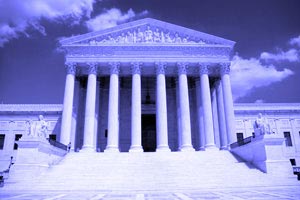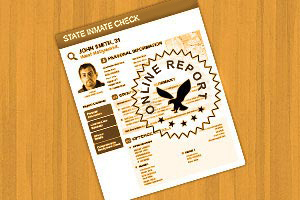Washington Public Records
Washington residents have the right to search for, obtain, and examine public records per the Washington Public Records Act. This law states that government records and information are presumed public. The Washington State Records website’s mission is to aid Washington state citizens in obtaining that information.
The goal of this website is to provide access to these public records in an expedient and concise manner and without requiring personal information unless the requested record is ruled confidential by law or court decision.
The records presented on this site contain information on criminal records, court records, and vital records, including over 65 million transparent public records.
Are Washington Records Public?
The Washington Public Records Act states that government-generated records are public records. Under the act, all persons can inspect or obtain copies of government records created or maintained at the municipal, county, or state levels by submitting a public record act request. Washington law defines public records as information related to the conduct and performance of any government function. The definition also covers all records created, owned, prepared, used, or retained by a governmental entity.
What is Considered Public Information in Washington?
Examples of these public records include vital records, such as Washington death records, court records, sex offender information, inmate records, bankruptcy records, and property records.
According to RCW 42.56.010(3), public records may also include legislative records (RCW 40.14.100), such as reports, meetings of minutes, amendments, and correspondence created or received by legislative committees and subcommittees. This section also covers administrative legislative records, such as travel information, payroll records, budget and financial records, records of legislative sessions, and any other record considered public by official action of the Washington House of Representatives or State Senate.
In addition, public records Washington generates include handwritten or typewritten documents, duplicated records, photographs, and all other means of recording, such as audio, video, tapes, maps, and information stored on digital devices. Thus, the general public may access this information by performing a public data search.
Several sections of the Public Records Act ensure public access to government records. For instance, RCW 42.56.030 expressly states that each public agency must liberally construe the Public Records Act to ensure that requesters obtain desired records unless exempted by law or otherwise restricted. Furthermore, Washington requires that state agencies must provide the public with information on how to make public record requests, including methods of submission. According to RCW 42.56.040(1), each agency must publish this information in the Washington Administrative Code and prominently display the details at its central office. Although agencies are required to make public records available to the public, a free public data search is not a requirement.
How Do I Find Public Records in Washington?
Finding public records requires the record seeker to follow a few steps. While specifics may vary depending on the type of record and the custodian agency’s preference, the following steps describe how to access public records in Washington:
- Decide on the desired information
Knowing what record to request is the first step to finding Washington public records. Since there are several types of public records, determining what type of information is needed helps to identify the type of record to be requested. For instance, persons looking for information on land or building ownership and related specifics must request property records. Meanwhile, vital record requests are directed to the State Department of Health.
- Identify the custodian agency.
The next step is to identify the agency maintaining the record. Each Washington public agency maintains records according to its functions and responsibilities. Deciding on the type of information directly assists the requester with identifying the agency that handles the desired records. For instance, Washington divorce records are obtainable from the Superior Court that heard the case or the Washington State Department of Health.
- Write a request.
After deciding on the desired information and identifying the custodian agency, the requester must submit an official request. The Washington Public Records Act has no requirement for written requests. However, a written request creates ease as it helps to provide the agency or record custodian with exhaustive information on the desired record. The request should clearly state certain specifics, such as whether the applicant wants a plain or certified copy and the desired number of copies.
According to RCW 42.56.080(1), the request must be for an identifiable record. Record seekers should ensure that the submitted request is as specific as possible, describing the desired record with extensive details. Record requests should also include the requester’s full name and contact details, along with a cash, money order, or check payment, or as preferred by the custodian agency.
- Submit the request.
Agencies usually offer different submission methods. In most cases, available options include mail, phone, online, fax, and in-person methods. Instead of sending requests, some records may also be obtainable online on the county website. For instance, residents can conduct a Pierce County public records search through an online records directory provided by the county government. Requesters must note that some methods may be faster than others, and may cost varying fees.
Using Third-Party Sites
City Records
Public city records may also be accessible from third-party websites. These non-government platforms come with intuitive tools that allow for expansive searches. Record seekers may either opt to use these tools to search for a specific record or multiple records. However, users will need to provide enough information to assist with the search such as:
- The name of the subject involved in the record (subject must be older than 18 or not juvenile)
- The address of the requestor
- A case number or file number (if known)
- The location of the document or person involved
- The last known or current address of the registrant
Third-party sites are not sponsored by government agencies. Because of this, record availability and results may vary.
Public Records
Public records can also be accessed from third-party websites. These third-party, public records aggregate websites offer search services that are non-geographically limited, making the search result expansive and typically straightforward. However, users will need to provide enough information to assist with the search, such as:
- The name of the subject involved in the record, as long as the subject is not a juvenile
- The last known location of the record subject
Third-party public records search websites are not government-sponsored services. Therefore, the availability and accuracy of results can vary.
How Do I Look Up Public Records in Washington for Free?
The Washington Public Records Act does not explicitly provide any fee waivers. In most cases, physical copies of desired public records cost copy or duplication fees. However, within the limits of its rules and regulations, an agency may waive request fees for public records (see RCW 42.56.120(4)).
Free public records searches in Washington may only be obtainable by searching public databases provided by public agencies. Some agencies regularly update online repositories containing some of the non-confidential information they maintain and provide the information free of charge. However, record seekers must note that information obtained online may not always be accurate and is usually not certified. Examples include the Washington Department of Corrections inmate search page and the state’s sex offender registry.
Unfortunately, most of the public records held by the clerks' and recorders' offices in Washington Counties are rarely made available without charge to those who request them. County deeds and court records are two examples of these records.
Washington began collecting and creating public records in 1907 from all 39 counties in the state of Washington. Digitization of public records has become the standard over the last 30 years. This allows websites, both governmental and third party, to offer these records online with increased reliability, thus ensuring Washington abides by the commitment of the United States of America to remain a fair and just society for all.




